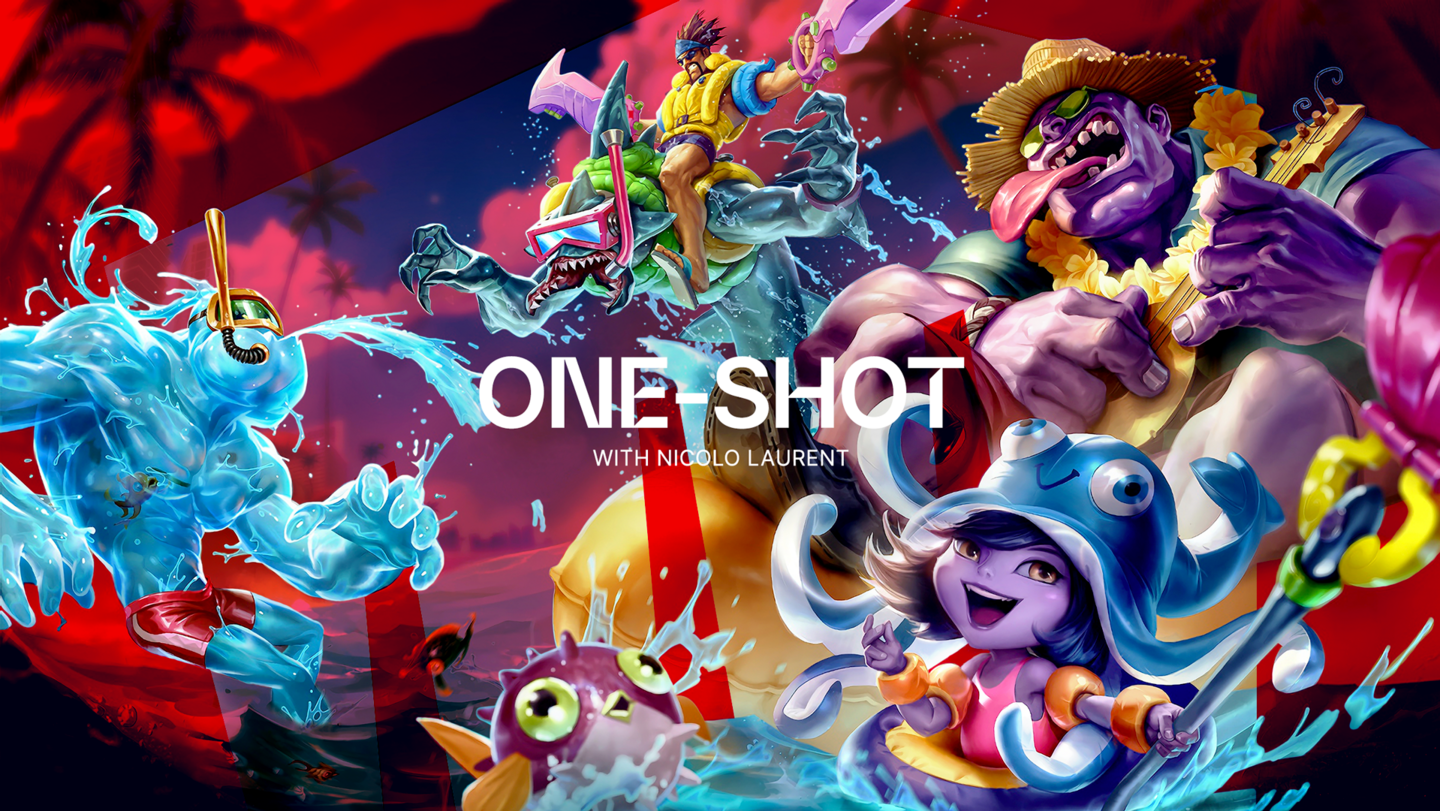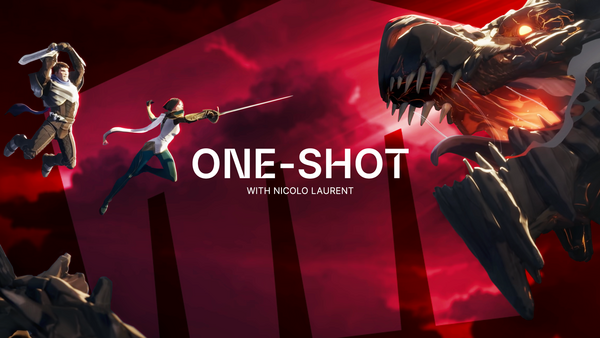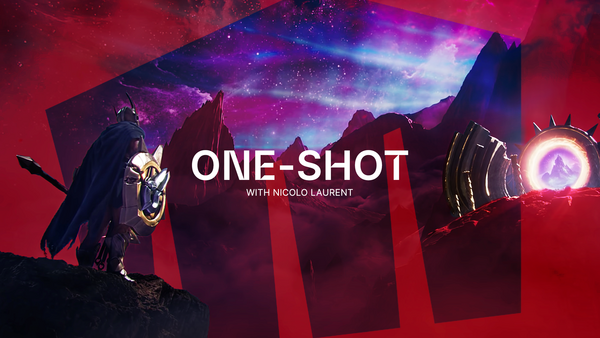In my first two posts this year (1, 2), I wrote about the nuts and bolts of Riot’s goals, how we work, and the magic of collaboration. For this installment though, I want to step back from our day-to-day to talk about work/life balance, the value of play, and how our industry can move away from the hero mentality of being 'on the job' 24/7.
The focus on not working is actually quite relevant for me right now, as I’ve recently finished 12 weeks paternity leave.
Beyond Work
September 3, 2022, the day Arcane received its Emmy Award for Outstanding Animated Program, was one of the proudest moments of my (professional) life. But do you notice anything unusual about this picture from that day?
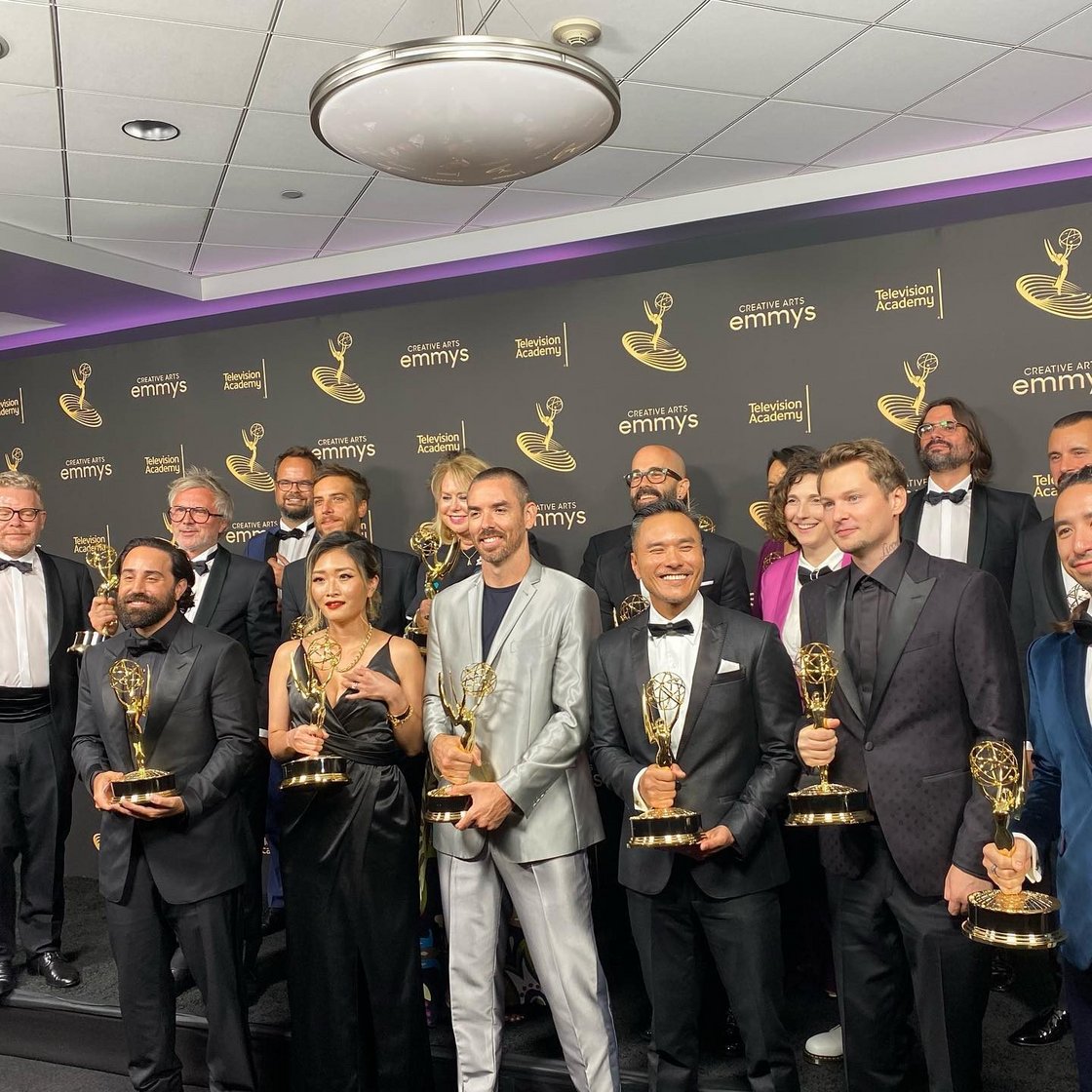
On this incredible day for Riot, the CEO of the Company was not there - not in the picture, not in the group of Rioters who were in attendance, and not anywhere else in the crowd.
And that’s not just lip service from an executive. I took my parental leave very seriously: no meetings, no emails, no Slack for the duration. Unless the building was literally on fire, I didn’t want to hear about it. Sure this meant I had to miss some exciting stuff (I hear I missed some really cool playtests for future content 👀), but I’d argue my kiddo is worth at least 99 Emmys. My stress was greatly reduced, I got to introduce my family in France to our newest addition, and I came back with renewed passion for the next chapter of Riot.
I also got a chance (thanks to the unpredictable nature of new father duties) to catch up on a few offline games when I had some downtime. I just finished Triangle Strategy and have gone back to Slay the Spire, this time on its awesome mobile version.
I just finished Triangle Strategy. Such a great game! If nostalgia was not a thing, I’d rank it above final fantasy tactics and tactics ogre. pic.twitter.com/phuuAmlCRX
— nicolo (@niiicolo) September 9, 2022
With all that being said, many might think that this was an aberration; that when I returned, I then crunched to get a backlog of work done and have been toiling endlessly ever since. This, thankfully, couldn’t be further from the truth thanks to Riot’s balanced approach to work.
Ending the Hero Mentality
Early in my career, I had a warped idea that breaks were bad and long hours meant I was “showing up.” I took pride in being always available, writing emails at any hour, and being as productive on vacation as I was in the office. In short, I wanted to be the hero. I quickly realized how wrong I was.
In creativity-driven industries like ours, successful execution is only one part of the battle. Oftentimes inspiration is where we win or lose, and innovation requires a carefully balanced formula with the right ratios of ingredients, and one of the most important ingredients is mindset. I know that unless I find the right ways to recharge, I won’t be at my creative best and ready to collaborate in the ways that lead to great innovations for players.
Recharging can take many forms. Maybe it’s time with your favorite game, catching up on the latest on Netflix, or a nice meal with family and friends. Sometimes it’s a real vacation, preferably for me a vacation with a set of skis and fresh snow. Regardless, that time spent fully disconnected is invaluable.

To see that in 2022 there are still leaders in our industry glorifying 100-hour work weeks tells me that gaming companies haven't done enough to learn from this industry’s past. Too often gaming companies have failed the people who grew up dreaming of making games. At Riot we’ve tried to be transparent about our failures and learnings when it comes to culture so I want to also be up front about how we approach work/life balance and how we’ve built Riot to avoid crunch.
I realize that working endless hours and burning the candle at both ends to constantly "show up" (aka the hero mentality) sometimes has a place. If you’re running a startup, or your company is in trouble, that kind of dedication may not only be necessary, but will also serve to energize folks to help propel the company in a positive direction. Having said that, it simply isn’t sustainable when you have a healthy, growing global company. A CEO’s goal should be to build an organization that thrives without the hero mentality.

Work/life balance doesn’t happen by accident. We go out of our way to create a work culture that rewards creative thinking and problem solving, and that doesn’t require Rioters to dedicate their waking life to work. There will always be more work to do, so you need to be intentional about planning, production, and building an approach to work that doesn’t reward (or require) crunch. As leaders, we also have to know that when we’re on 24/7, working weekends and long nights, that even if we aren’t asking that of others, they’ll think that’s what they need to do too.
In a company focused on live-service titles like Riot, we can’t view shipping something as a win condition. Shipping a game for us is like getting through the draft phase… the real game is ahead. This means being prepared to support games for months, years, or, hopefully, decades after launch. Doing this right means knowing when to back down, rest, regroup, and come back better next week. When not to take that 1v5; when not to be a hero.
I want to recognize that, while all this sounds great, there are times that Rioters—like those who put on amazing experiences for players like Worlds or those in the last push before a big launch—dedicate large chunks of time to making the experience the best it can possibly be. We appreciate their hard work and amazing execution for those big moments. We also recognize that after the big day, it's important that we give those Rioters space to recharge in their own ways after a big push.
Occasionally long hours happen, but when hard work becomes crunch, and occasional becomes regular, that’s a failure of leadership. We specifically ask about work/life alignment as part of our internal surveys; if there’s a team way off from the average, we want to know that right away and address it with that team.
Supporting Rioters and Riotlings
We continue to actively look for ways to enable Rioters to enjoy their lives outside work.
In the last few years we’ve been expanding our parental leave policy and today most Rioters are eligible for at least 12 weeks of paid parental leave. I’m also proud that we offer amazing fertility, adoption, and surrogacy benefits to Rioters of all genders, because we know that family can be an extremely valuable part of life
We also recently introduced a sabbatical program under which long-tenured Rioters can fully step back from their work. I’m excited to hear about the places people go, the hobbies they embrace, etc., as well as to see the refreshed mindset they bring when they return to Riot.
Bottom line: we want Rioters to enjoy life, not just work/life.
Which brings us to another important part of the work/life formula at Riot: our open PTO policy.
Admittedly, such policies have been a point of contention in the tech world. Critics of policies like ours say that employees are reluctant to ask for time off, and thus don’t take advantage of this incredibly valuable benefit. At first, I couldn’t believe such a mentality existed, but it was true! So we kind of forced it: we close the office twice a year to mandate both a summer and winter break (and we still encourage Rioters to utilize open PTO the rest of the year).
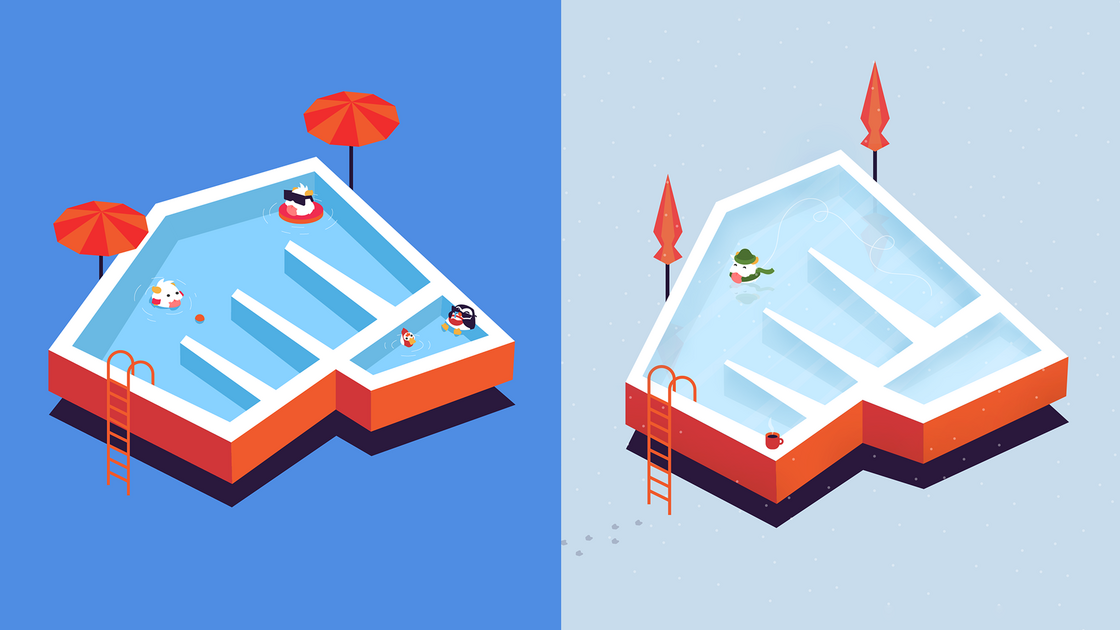
Every year, for a week in the summer and another two in the winter, the entire company stops and takes a collective deep breath (it was important too that we had solutions for those Rioters who run our live games and esports, so they stagger mandated breaks at other times). Because we ask for complete detachment from work during these times, and the whole organization takes a break at the same time, Rioters can fully relax without fear that there will be a pile of slack messages and backlogged emails to deal with when they get back.
Work Hard, Play Hard
Of course we also take play seriously year round, not just when we’re on PTO.
For as long as Riot has existed, we’ve always encouraged Rioters to take the time to play and experience everything we make. This takes all sorts of forms, from gaming in our on-campus PC cafes (modeled after the PC Bangs in South Korea), to engaging in play tests, to joining friends for an epic D&D campaign. It’s essential that Rioters know what it’s like to play like a player. I easily play 15-20 hours a week in my personal time on top of the regular work play tests I participate in.
We even host a yearly internal tournament for each of our games called Rumble (you can check out VODs of Rumble here). It has become an integral part of what makes Riot special and brings teams together, even if their day job is as far as you can get from game balance (for example, one of our most famous Rumble teams consisted of Rioters from the finance team). It’s also been leveraged for testing new features (keep an eye out for VALORANT Premier coming soonTM). It truly is a special time of year, and the prizes are nothing to sneeze at either…I’m still jealous every time I see one of those jackets.
Oh snap, Rumble Jacket came in. Nice and comfy and shows I’m a try hard. pic.twitter.com/Ogu33HmMPA
— Riot Mort (@Mortdog) December 10, 2019
But we don’t only encourage playing our games. In fact, we actually provide an annual stipend that we call our Play Fund, with the express purpose of helping Rioters buy games from competitors. We constantly need to learn from other studios, both their brilliance and mistakes, to stay in step with player needs and create incredible experiences for them.
Tipping the Work/Life Balance toward Life
It’s funny, when I first left France, I used to think that it was a hard place to get work done: those 35 hour weeks and long summer breaks felt like major productivity obstacles. Now, 20 years later, I’m trying to bring a similar culture of rest and recuperation to our teams in the U.S. (Yes, I’ve learned quite a bit in two decades). And that will not be easy.
In places like the U.S., perception of what constitutes hard—and valuable—work is currently not in a very healthy place. But I, and we at Riot, remain committed to making changes that will benefit Rioters, just as we have done for players over the years. For the most part, Rioters love where they work. And I think a big part of that satisfaction is that they get to live their lives, so they can bring their best selves to work and deliver for players.
In closing, I’ll offer one piece of advice. If you don’t have your next vacation planned, even if it’s just staying at home and enjoying time off with your Steam backlog, start planning it now. And then once you’ve taken a break, try not to resume work without having at least some idea when your next break will be. Your brain, and your colleagues, will thank you when you return energized, ready to solve problems, and brimming with creativity. There are no heroes in game dev, so put down your cape and pick up a suitcase for your next adventure.
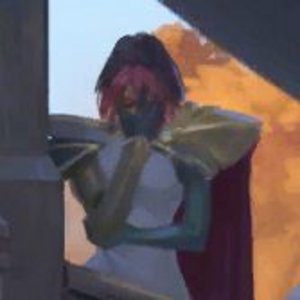

Nicolo "nicolo" Laurent
Nicolo "nicolo" Laurent is CEO of Riot Games. Fallen-from-Gold Sona and Pyke main, Brolaf fan, and unapologetically French. As CEO, Nicolo oversees strategy and execution to ensure Riot delivers the highest quality experiences to players...Or at least that’s what he tells himself while he’s playing games “for research.”
